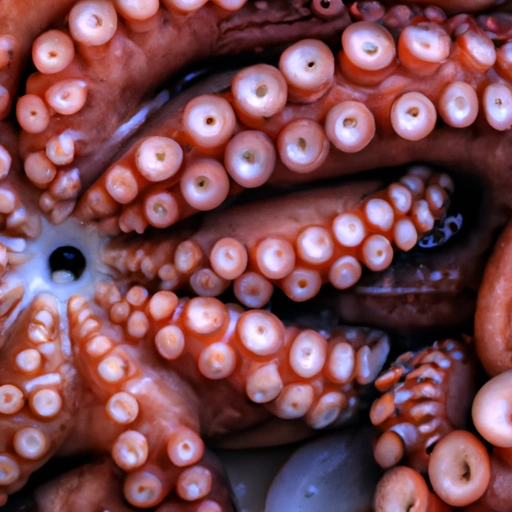Octopus
Description

Octopus is a sea creature known for its distinctive body shape with eight tentacles. It's a popular ingredient in many cuisines around the world, valued for its unique texture and flavor.
Common uses
Octopus is commonly used as a main protein in dishes, served grilled, boiled, or as sushi and sashimi. It's also a key ingredient in seafood stews and salads.
Nutritional value
Calories
On average, a 3-ounce (85 grams) serving of cooked octopus provides about 139 calories.
Protein
That same serving of octopus contains about 25 grams of protein.
Fat
Octopus is low in fat, with less than 2 grams per serving.
Carbohydrates
Octopus contains no carbohydrates, making it an ideal choice for low-carb diets.
Vitamins
Octopus is a good source of vitamins such as Vitamin B12 and B6.
Minerals
It is rich in minerals like selenium, iron, and potassium.
Health benefits
Eating octopus can contribute to heart health due to its high levels of omega-3 fatty acids. The selenium found in octopus is an antioxidant, which helps protect cells from damage.
Potential risks
Individuals with shellfish allergies should avoid octopus. Overconsumption can also lead to an intake of excessive cholesterol and sodium.
Common recipes
Octopus is used in a variety of recipes, from Greek grilled octopus to Japanese takoyaki and Korean nakji bokkeum.
Cooking methods
Popular methods of cooking octopus include grilling, slow-cooking, and stir-frying.
Pairing with other ingredients
Flavorful pairings include ingredients like lemon, garlic, paprika, and olive oil.
Summary
Octopus is a culinary delight that has found its way into a variety of dishes around the world. With its impressive nutritional profile, including a high content of protein and low fat, it is both a healthy and versatile choice for many recipes. Despite its benefits, individuals should be mindful of potential allergies and its cholesterol content. Whether grilled, boiled, or added to a stew, octopus can enhance a meal with its unique texture and rich flavor.